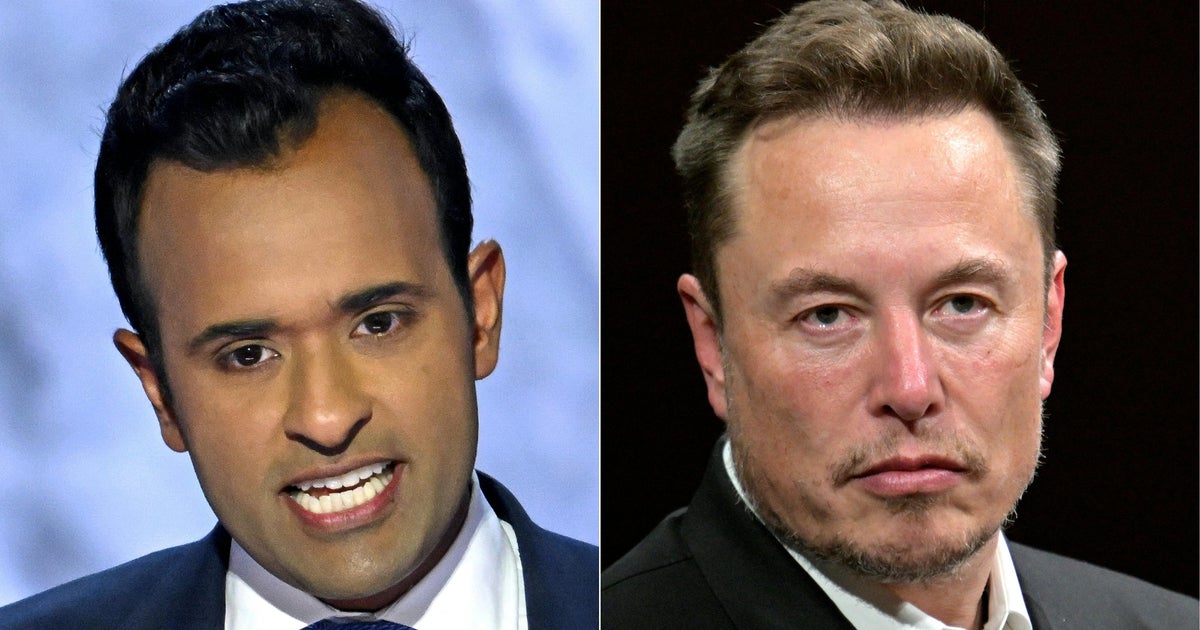5 things economists say Trump doesn't get about trade
President Donald Trump this week announced a preliminary outline for a new trade agreement with Mexico in a bid to remake the North American Free Trade Agreement. Representatives from Canada, perhaps the most integrated U.S. trade partner and the third nation in NAFTA, are in Washington this week to restart stalled talks with the U.S.
But Chinese negotiators left Washington last week without making apparent progress in multiple disputes as the U.S. contemplates slapping another round of tariffs on an additional $200 billion on the country's goods. At stake, as the trade disputes fly, are higher costs for U.S. companies and consumers.
One major obstacle, experts contend: Mr. Trump's own understanding of trade issues. Here are five things economists say the president gets wrong about trade.
Trade, and trade deficits, aren't a zero-sum game
Mr. Trump and his economic advisers focus on trade deficits, and the president has said a trade war would be "easy to win." But trade relationships are far more complex.
In the U.S., consumer spending accounts for about 70 percent of economic activity. American households also save far less than their counterparts in Europe and Asia. The personal savings rate among Americans has hovered at less than 5 percent for years as spending has boomed, according to the Federal Bureau of Economic Analysis. By the end of June 2018, the rate dipped to 3.8 percent, the bureau reported.
In contrast to the U.S., Europeans save more than 10 percent, according to Tradingeconomics.com and Eurostat. In China, it's an eye-popping 46 percent, according to the International Monetary Fund.
"This president equates a trade deficit with unfair trade. Trade deficits are a function of our low savings rate, relative to our trading partners, not from other countries treating us badly," said Michelle Casario, an associate professor at Villanova University.
Demand imbalances are neither good nor bad
When the economy is doing well, consumers are more likely to spend than save, and that includes buying more imported goods and services. That's one reason the U.S. trade deficit in July rose to its highest level since February.
Such deficits "are neither 'good' nor 'bad' -- they simply reflect a country's net national saving, which is declining in the U.S.," economists from Oxford Economics wrote in a recent note addressing its own list of "myths."
Historically, when the economy slumps, consumers spend less and trade deficits decline, like during the Great Recession a decade ago or the Great Depression in the 1930s.
A decade of recovery from the financial crisis "translates into growing demand for all goods, some of which are imports. Unsurprisingly, our trade deficit actually declined during the Great Recession when our demand fell for domestic and imported goods," Villanova's Casario said. "Given the strength of the U.S. economy relative to our trading partners, it's to be expected that our trad deficit will rise."
Indeed, consumer confidence is at an 18-year high, though some signals indicate that trade war fears are dinging consumer sentiment, according to a widely followed survey from the University of Michigan for July. If consumers lose confidence and don't spend as much, growth slows in the U.S. -- and often in the rest of the world.
High tariffs can make it hard for foreign countries to invest
Past free-trade agreements gave foreign companies incentive to invest in the U.S., typically in manufacturing and in startup companies. That created more U.S. jobs.
"When a country saves more than they can invest domestically, they push their savings abroad and invest in other countries," Torsten Slok, an international economist for Deutsche Bank, wrote recently in a note.
But imposing tariffs can make it difficult for a country and its companies to invest. Take Japan. Earlier this month, its trade minister, Hiroshige Seko, said Mr. Trump's tariff policies reflect a serious misunderstanding of the importance of free trade and Japanese contributions to the U.S. economy, like the auto plants Japanese carmakers have built on American soil.
"Japanese automakers are a major contributor to the American economy," Seko said in an Associated Press interview at his ministry office in Tokyo. "If the Japanese auto industry is weakened, it will not be able to invest in the U.S."
Since Mr. Trump took office and upended U.S. trade policy, foreign investment in the U.S. has dropped dramatically, the Peterson International Institute for Economics noted recently.
Tariffs are taxes paid by companies bringing in goods
Tariffs are designed to steer purchases to a country's domestic producers, rather than foreign ones. The higher the tariff, like those the U.S. has imposed on imported steel and aluminum, the more the domestic manufacturer can charge as foreign rivals' steel and aluminum get more costly via tariffs. That can lift prices for all of an industry's products, and those increases get passed onto consumers.
As Mr. Trump tries to punish trading partners with higher tariffs, like on autos or on thousands of goods imported from China, those partners have responded with retaliatory tariffs, including on U.S. agricultural goods. That has hurt exports for U.S. agricultural producers, namely farmers. Chinese tariffs on U.S. soy products, for example, mean Chinese buyers of soy will turn to other sellers.
That dynamic led the Trump administration this week to announce an initial $4.7 billion tranche from a $12 billion package of subsidies to help farmers absorb their losses from lower foreign demand.
U.S. tariffs are generally the same level as trading partners'
Taking an average of four measures, the U.S. has an average tariff rate of 2.73 percent, according to Slok. That's slightly less than the same calculation for Canada (2.74 percent) and the EU (3.29 percent.
"China and Mexico have notably higher tariffs, regardless of the metric used," Slok wrote. "Overall, this myth is only half-true; the US has lower tariffs than most partners, but not by an extreme margin and with many major partners the differences are negligible."



